Summer is a wonderful time of year for the home cook. This is because while winter offers a range of heavy meals, root vegetables, comfort foods and high calories, summer challenges us and asks us to eat light, to try meals that don’t make us feel lethargic, and of course, to sample the wonderful cuisine from cultures all around the world lucky enough to enjoy a hotter climate.
East Asian food, Mediterranean foods, African foods Arab cuisine, need we say more? All of this has been carefully designed to be as delectable as possible and to make the most out of the most beautiful ingredients on Earth. The best part? This is in no way an exhaustive list.
So, the one downside of thinking about summer cooking is that there’s just so much to choose from. As a home cook, or someone hoping to learn a new cooking process, it can be truly tough to know where to start. Never fear, however, for in this post we’ll give you some essential insight to get started:
Light, Colorful Cooking
While winter meals are often darker, with roasted meats, root vegetables, and more indulgent offerings, summer cooking can be lighter, more colorful, more fun, and more expressive. That doesn’t mean the latter is superior to the former, it’s just different.
For instance, summer fruits and tropical meals can provide a truly wonderful form of light cooking, while incredible alternatives on your usual breakfasts, such as delicious chilaquiles rojos instead of heavier, sugar and carb-laden meals can provide something fresher, shareable, and distinctive.
On top of this, lighter sauces like yoghurt mint, tzatziki, and hummus can provide that light adornment which helps each bite take on a beautiful taste of its own. On top of that, summer cooking is all about getting the most out of simple ingredients. With a little oil, some essential chickpeas, garlic, citrus and tahini, you can make your own.
Presentation Matters
Summer cooking is less about indulgence and more about the beautiful presentation, putting together ingredients carefully but in a simple, refined manner. This has been popularized by Iberian cuisine, where amazing tapas dishes showcase a range of incredible flavors in quite simple dishes, allowing you to pick and choose what your next bite will be and doing so with care.
Presentation of this nature can not look wonderful, but it adds a visual legibility to everything you present on the table. This is often because summer cooking is more likely to be shared and eating outside, and so simplicity, portability, and the ability to pick and choose are key. If you can think along those lines, then your summer cooking approach is sure to take on new life.
Lower Intensive Carbohydrate Intake
While it’s good to eat carbohydrates in reasonable quantities, it’s also important to remember that these can spike our blood glucose levels and ensure an insulin response, which is where the ‘carb crash’ often comes from.
When you’re sat on a beach, or trying to relax in the sun, the last thing you want is to fall asleep and feel lethargic. This is why lowering our carbs in exchange for healthy fats and high-quality proteins can be healthy.
In other words, try to limit the breads or intensive carbs you intake, and instead eat salads, and get your carbs from vegetables as much as possible. Eat cheeses such as feta, or more complex carbohydrates that provide fuel for longer, like oats in the morning or brown rice with fish, can be a great way around that.
The Best Beverage Pairings
No meal is complete without a drink, of course, which is why it can be so useful to implement the best beverage pairings going forward. This might mean you take a healthy interest in drinking light white wines with certain healthy foods, or pitchers of diluted juice concentrates.
Sweet teas and iced coffees can also make a tremendous difference. Think about your drink pairings with your meals, because hydration is essential in the summer, and drinking enough can help us offset the tired feeling that sometimes comes after eating a meal. On top of that, there’s nothing nicer than enjoying a cool light beer at the end of a beautiful night, or using wine in our cooking to better enhance the flavor (burning or cooking off the alcohol can help you reduce your intake). In the long run, this helps you think of your cooking from all angles once more.
With this advice, you’re certain to think about cooking the best summer meals in the best possible manner.
This is a collaborative post.


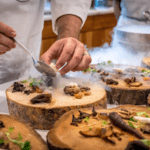
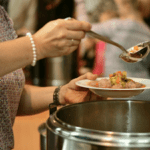

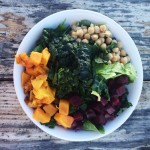
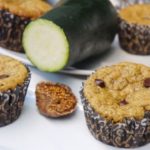
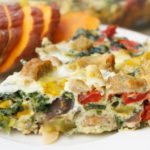

Leave a Reply